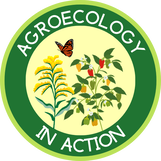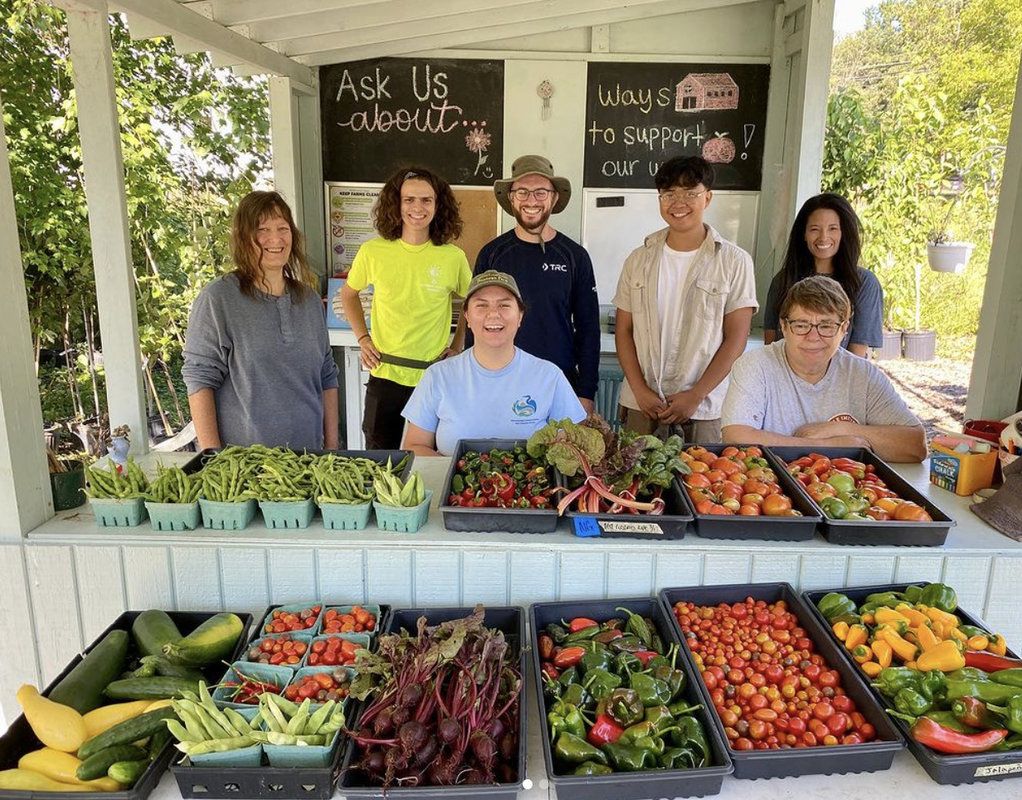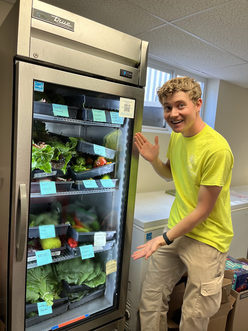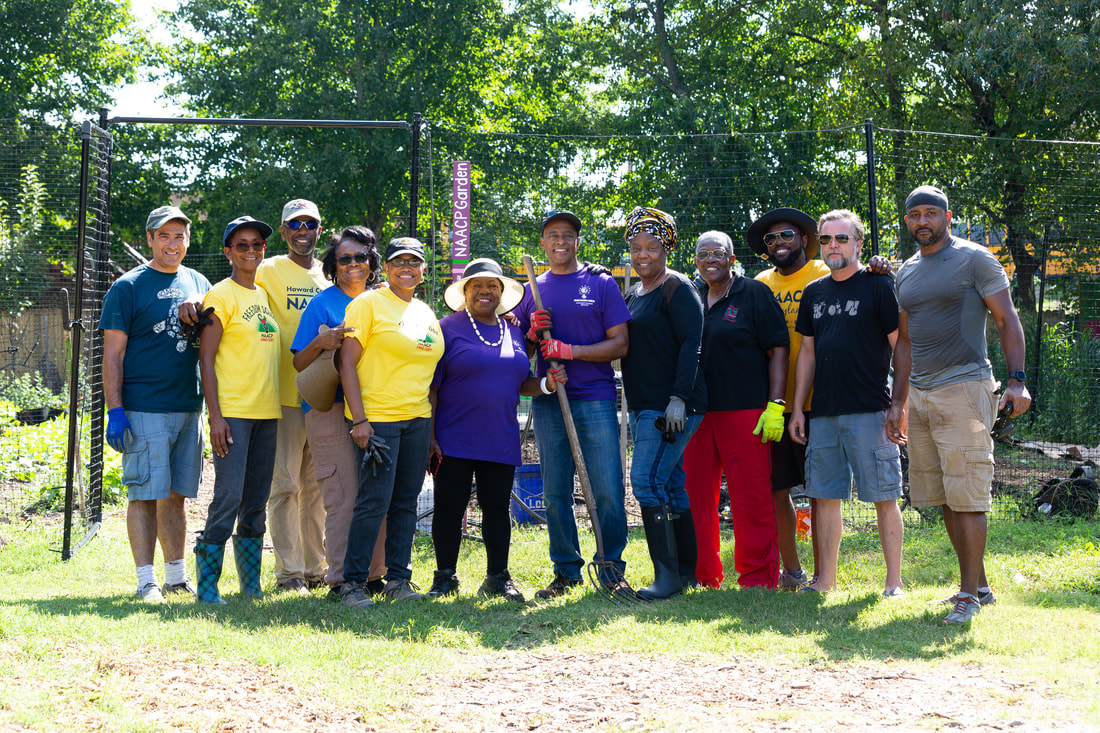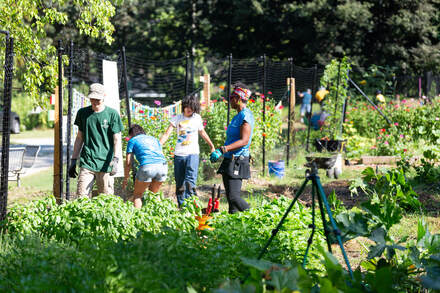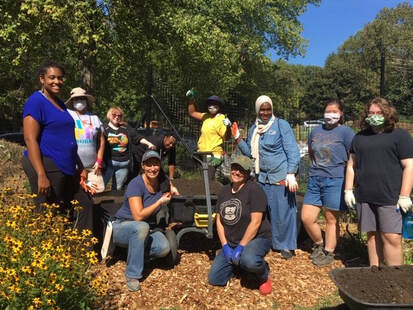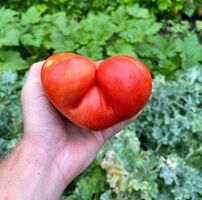|
The Agroecology in Action program provides our community an opportunity to collaborate in the growing of food for our local food system from start to finish. We employ and teach regenerative growing practices in a variety of demonstration gardens to model the role they can play in a community as a food producer, economic driver, and a tool to take climate action. The food grown is distributed to local food assistance programs and at our farm stand.
Feeding our community |
|
According to the most recent Howard County Health Assessment (2021):
- 1 in 6 Howard County residents reported concern about running out of food before they could afford more.
- 32% of residents reported eating vegetables less than once per day in the past week.
|
The Agroecology in Action program works to address food insecurity in our community by growing and sharing food and knowledge. Each year, we grow a wide variety of vegetables, herbs, and flowers using regenerative agricultural practices, which take care of our soil and make our produce more nutritious and better tasting. We then harvest and distribute thousands of pounds of this produce, prioritizing sharing it with our neighbors participating in food assistance programs. We do this with the help of our distribution partners, who ensure our food reaches tens of thousands of people across Howard County
|
Stewarding Our land
Howard County’s most recent Climate Vulnerability Assessment reports greater extremes in temperature and weather events. We know that the rapidly changing climate is already impacting us all, and it disproportionately impacts marginalized communities. With this knowledge, the Agroecology in Action program aims to steward our land in a way that demonstrates concrete climate action to reduce the impacts of climate change in our own backyard.
Once part of a region of mostly farmland, Freetown Farm is now the last working farm in Columbia and is situated amongst a large suburban development. On our property and in collaboration with our community, we employ a number of ecological stewardship practices such as stormwater management, lawn transitions, and native habitat restoration. These practices support our local ecosystem and are replicable on many scales, allowing us to show visitors what they could be doing in their own space to take climate action.
Once part of a region of mostly farmland, Freetown Farm is now the last working farm in Columbia and is situated amongst a large suburban development. On our property and in collaboration with our community, we employ a number of ecological stewardship practices such as stormwater management, lawn transitions, and native habitat restoration. These practices support our local ecosystem and are replicable on many scales, allowing us to show visitors what they could be doing in their own space to take climate action.
empowerment through education
Like all of CEI’s core programs, education is at the foundation of the Agroecology Program. Throughout the growing season, we welcome hundreds of volunteers into our greenhouses and gardens to participate in the work that goes into our food growing. Each volunteer gets the opportunity to work alongside a CEI staff member, who takes the time to orient them to the ‘how’ and the ‘why’ of their task. Our farm staff also collaborates with CEI’s other programs, teaching program participants about our work and engaging them in our demonstration gardens. Through these offerings and more, we aim to empower our community to take individual and collective action to create tangible, local change that feeds into a larger global movement.
Partnering with Our Community
|
Laurel Advocacy and Referral Services (LARS)
Since 2022, our Agroecology in Action program has partnered with Laurel Advocacy and Referral Services (LARS) to provide their food pantry with farm fresh produce throughout the growing season. LARS empowers individuals in need of food, housing and financial assistance to achieve well-being, stability and self-sufficiency. They provide emergency services alongside case management for permanent supportive housing and through a self-sufficiency program for the Laurel community. Each week, our team harvests seasonal produce from our gardens at Freetown Farm and delivers it to LARS, distributing over 2500 pounds of food to their pantry in 2023 alone! |
|
NAACP
The Howard County Branch of the NAACP has been a part of stewarding Freetown Farm since the beginning of the 2020 growing season. Members have designed, established, and nurtured a bountiful vegetable garden from scratch, growing abundant kale, chard, okra, basil, peppers, broccoli, cauliflower, cabbage, and more! In 2023, approximately 60 volunteers helped out with the George Washington Carver community supported agriculture initiative |
|
Columbia Community Care
The Mission of Columbia Community Care is to provide resources, services, and programs to students and families in Howard County, under four pillars: liberation education, health and healing, purpose pathways, and essential resources. Their intention is to build relationships, cultivate & develop social and collective power, promote knowledge of self & history, and build economic independence & generational wealth. CCC is both a participant in and beneficiary of the growing of food in the market garden at Freetown Farm. |
|
HopeWorks
HopeWorks volunteers and staff spent more than 100 hours on Freetown Farm in 2021, working in the HopeWorks Healing Garden -- a safe space of connection and growth for survivors of domestic violence. This produce and perennial garden offers a meditative space that helps survivors build a stronger community and foster a deeper appreciation and bond with the earth. The HopeWorks Our Earth program supports exploration of environmental injustices that disproportionately affect those who are marginalized. |
Support our program
Last year we were able to distribute 5,500 pounds of produce, which is the equivalent of 10 school buses full of food. When you support the Agroecology in Action program, it directly impacts our ability to provide more fresh, nutritious produce to those in need. Consider supporting us in the following ways:
- Visit our farm stand. Beginning in mid-April and through the summer, we will hold plant and produce sales at our Freetown farm stand on Saturdays. During our open hours, we will frequently have educational activities open to the public; it’s a great opportunity to stop by and get to know our farm community!
- Subscribe to our email communications to receive the latest updates on how you can engage with and support this program.
- Visit the CEI Newsletter sign-up form
- Make sure to check “Agroecology in Action” and any other programs for which you’d like to receive updates.
- Follow us on social media and share our content with your networks.
- Follow our Instagram account: @freetownfarmcei
- Follow CEI's Facebook page: the Community Ecology Institute
- Tell your family and friends about us! Word of mouth has been essential to our success as an organization, and we need you to help our network keep growing.

